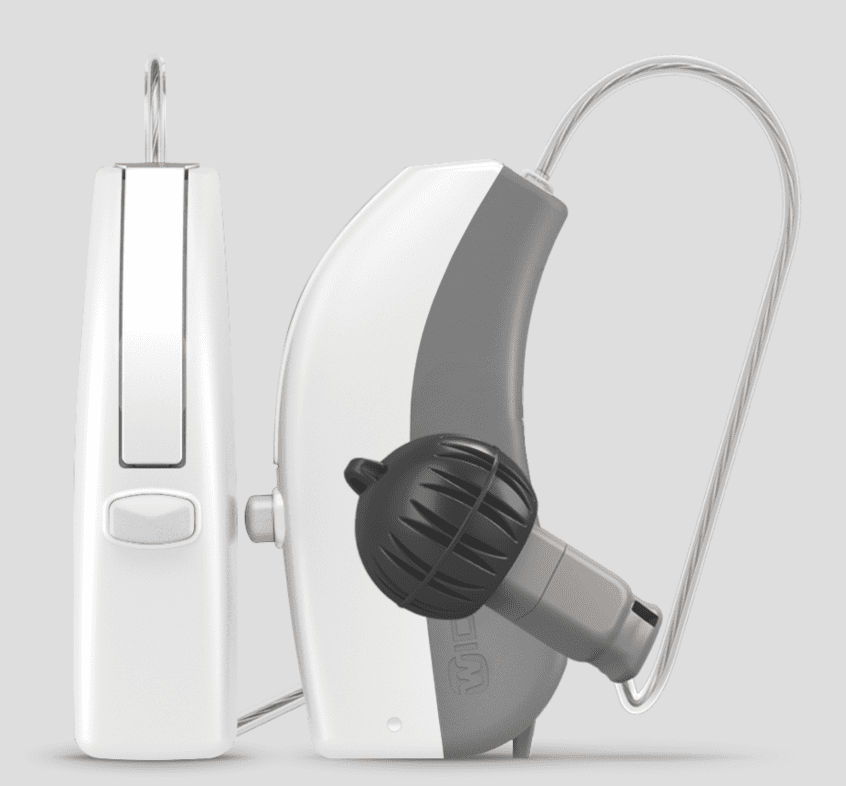Whistling, or hearing aid feedback, is a common occurrent for anyone who wears hearing aids. But you’ve probably been asking yourself, “why does my hearing aid whistle and how do I fix it?”.
According to Widex, a leading manufacturer in the hearing aid industry, hearing aid feedback occurs when sound that was supposed to go into your ear canal leaves your ear and jumps back into the hearing aid microphone. The sound then gets reamplified, causing your hearing aids to whistle.
This feedback can happen in different situations, like when you put your hearing aids on in the morning and take them off in the evening, or when someone hugs you. This is perfectly normal because the hearing aids are reacting to the sound bouncing back from your surroundings.
Hearing aid feedback could also be a sign that something could be wrong with your hearing aids, or they need to be cleaned. In that case it’s best to consult an audiologist.
Possible Solutions …
Many hearing aids come with feedback cancellation, but this doesn’t completely safeguard you from feedback. Several things can cause your hearing aids to whistle. Here are the most common reasons for feedback and how to resolve them.
- A poor fit: Just like the rest of your body, your ears change over time. They may even change shape. If they do, the earmolds can become loose and won’t seal properly. This means the sound gets away from your ear and back into your hearing aids’ microphones, causing feedback. To fix it, you may want to get new earmolds fitted to your ear. Weight gain or weight loss can also affect your ears and the fit of the earmolds.
In general, if your hearing aids are not put properly in your ear, it gives the sound a chance to escape and re-enter the hearing aid microphone, so make sure they are sitting nice and tight in your ear. If you are unsure, see your audiologist.
- Too high volume: It can sometimes be tempting to turn up the volume on your hearing aids. But turning it up too loud can force the sound to re-enter your hearing aids, which causes whistling. Turn down your hearing aid volume and avoid the point where the sound gets so loud that it creates feedback.
- Broken tubing: For some hearing aids, the tube that connects to the earmold can harden and shrink. Sometimes the tubing then starts to pull the earmold, so that it doesn’t have the right fit anymore. That may cause whistling and could mean you need new tubing.
- Too much earwax: Your hearing aids help you hear because they deliver sounds to your ear canal. But if the ear canal is blocked by too much earwax, the sound can’t get through. So, it bounces back to your hearing aids – and they start to whistle. If you’ve got excessive earwax, it can also block your ear canal and, in addition to causing problems with your hearing aids, it can cause earaches or damage your hearing. Get your ears cleaned by a professional and, while you’re at it, make sure that there are no clogged receivers or vents.
- Dislodged microphones: Hearing aid feedback can also be caused by loose or displaced microphones. Your audiologist can help confirm and resolve this issue.
If you continue to experience problems with hearing aid feedback and can’t figure out the reason, ask your audiologist to help you.
Associated Audiologists is a full-service professional audiology practice, servicing and repairing hearing aids from most major manufacturers. To be certain our patients’ hearing aids are in good working order, we recommend regular follow-ups and pre-schedule these appointments. This type of routine maintenance and regular monitoring of hearing and hearing aids are critical to success, and often, we identify and replace issues such as tubing at these visits.
However, if there is an issue that crops up outside of routine maintenance visits, we offer Monday through Friday “Urgent Ear” hours for emergent same-day repairs, along with manufacturer repairs when necessary. We also offer a loaner program in the event your hearing aid needs to be sent to the manufacturer for repair, as well as curbside care and after-hours drop boxes at our clinics.
Contact the clinic nearest you to see how we can help, or schedule an appointment with a doctoral-level audiologist.



